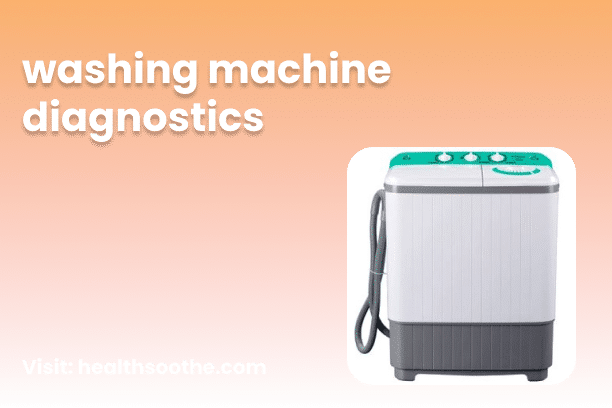Most modern washing machines are designed to accommodate both cold and hot water usage, giving you the flexibility to disable the water heater or utilize cold water in case of a heater malfunction.
Alternatively, some machines are exclusively designed for cold-water input, provided you use cold-water detergents and wash delicate, dark-coloured fabrics in milder weather conditions.
When making the decision to use cold water in your washing machine, factors such as the type of detergent, fabric characteristics, colour, and prevailing weather conditions must be taken into account.
In this context, I will elaborate on the circumstances under which cold water is most suitable and when hot water is the preferred choice for laundry.
But before delving into that, let me provide a more comprehensive explanation of why running your washing machine exclusively with cold water is a viable option."
Why Can You Run a Washing Machine with Just Cold Water?
1. Most Modern Washing Machines Are Intended for Cold or Hot Water Use or Both
Please make sure to verify your washing machine's manual to confirm whether it is designed for cold water use only, as not all machines offer this option. If you cannot find this information, contacting the manufacturer is advisable. In general, modern machines that support cold water-only operations tend to work well with most detergents.
These washing machines are commonly referred to as "hot-filled" machines, as they come equipped with two hoses: one for hot water and another for cold water. The hot water hose relies on preheated water from your home, making its function dependent on the availability of hot water. Conversely, the cold water hose supplies cold water.
These machines provide two primary options:
a) Cold Cycle: Some washing machines with both cold and hot water fill hoses allow you to select a cold cycle, using only cold water. This feature is particularly useful when you don't require heated water for your laundry, helping you save on energy costs.
b) Turning Off the Heater: While the mechanism may differ from machines that offer a dedicated cold cycle, the goal remains the same. Certain washers permit you to deactivate the water heater and run solely on cold water. In the event of a heater malfunction, you can still proceed with your laundry. The only drawback is that the cold cycle may take longer than usual, which can be slightly inconvenient.
Running a cold cycle may only be problematic if the water is extremely cold. Otherwise, using the appropriate detergent should not pose any issues.
Pros and Cons of Washing Machine
Pros
- Time and Effort Saving
- Efficient Cleaning
- Large Capacity
- Consistency
Cons
- Initial Cost
- Noise
- Water and Energy Costs
- Space Requirements
Differences Between washing machine and Dryer
Washing Machine
Washing machines require a water connection, either through a water inlet hose connected to a water supply or a built-in water heater. They need a water source to operate.
Dryer
Dryers require electricity or natural gas (in the case of gas dryers) to generate heat. They do not need a water connection like washing machines.
Alternative to Washing Machine
Hand Washing
Hand washing is the most straightforward alternative to a washing machine. Fill a basin or sink with water and add detergent. Agitate the clothes in the soapy water, paying extra attention to stains or soiled areas. Rinse the clothes thoroughly, squeeze out excess water, and hang them to dry.
2. Some Washing Machines Heat Their Water (Cold-Filled Washers)
Cold-filled washing machines typically feature a single hose that exclusively delivers cold water. It's worth noting that the term "cold water" is used in quotes because these machines have the capability to heat the water themselves rather than relying on hot water from a home's storage tank. Consequently, there's no need for an external hot water supply.
In general, cold-filled washing machines are well-suited for use with biological detergents, which require a temperature range of approximately 60-40°F (15-40°C) to be effective. Unfortunately, hot water can denature the enzymes in these detergents due to their high temperature, rendering them less effective.
Conditions for Running a Washing Machine with Just Cold Water
1. Biological ‘Cold-Water’ Detergents
Certainly, here's a paraphrased version of this section:
It's important to note that not all detergents are equally effective when used with cold water. Therefore, if you opt to run your washing machine exclusively with cold water, make sure to select a detergent specifically formulated for cold water use.
These detergents, often of the biological type, contain enzymes that remain active within the temperature range of cold water, which typically falls between 80°F to 60°F (27°C to 15°C).
In general, powdered biological detergents may not perform optimally in cold water settings, as their dissolution rate tends to be considerably slower under these conditions.
2. Washing Delicate Fabric
Cold water is well-suited for washing delicate fabrics like silk, wool, acrylics, and acetate. It's also a suitable choice for cleaning items such as sportswear, t-shirts, lightweight summer clothing, and blouses.
3. Dark/Colored Clothes
Cold water is not only ideal for delicate fabrics but also for dark and vibrant-coloured clothing, as it is less likely to cause fading.
4. Less Chilly Conditions
While many washing machines can operate effectively with cold water, it's essential to note that the ambient temperature does play a role. In colder environments, the enzymes in detergent become less effective.
It's worth remembering that these detergents are most efficient when used in climates with temperatures of at least 60°F (15°C). If the temperature falls below this threshold, the detergents may not perform effectively.
Does A Washing Machine Need Hot Water?
With the introduction of cold-filled washing machines equipped with a single hose that supplies and heats its own water, you might be wondering whether washing machines require hot water. In reality, only cold-filled washing machines do not rely on stored heated water from your home's tank, as they possess the ability to heat the water themselves. This eliminates the need for you to provide preheated water.
However, these cold-filled machines have a drawback—they tend to be slower and may not deliver the best results when dealing with tougher fabrics and stains.
On the other hand, hot-fill washing machines draw hot water from your household water heaters, which means they do indeed require access to hot water. Most of these machines are prevalent in the United States, while the self-heating options are more commonly found in Europe.
In summary, the necessity for hot water largely depends on the configuration of your washing machine's hoses. If it features a single hose, it doesn't require a supply of hot water from your home heater, as it can heat the water itself. However, if it has a dual-hose setup, one hose is dedicated to receiving hot water from your home's heater.
Should A Washing Machine Be Connected to Hot or Cold Water?
Considering that most washing machines feature a dual-hose setup, you might be wondering whether you should connect to hot or cold water. The answer, in fact, is both.
On one hand, using cold water enables you to wash delicate garments and reduce energy consumption. On the other hand, hot water is advantageous when dealing with heavy-duty laundry and tackling stubborn dirt and stains.
It's important to note that you have the flexibility to turn off the water heater or select the cold cycle if your intention is to use cold water exclusively.
What Happens If You Only Have Cold Water for Laundry?
Exclusively using cold water for your laundry is not a disadvantage; it's entirely feasible. However, it necessitates careful selection of both the clothing items to wash and the detergent to use.
In general, it's advisable to wash delicate fabrics, t-shirts, blouses, sportswear, and lightweight summer attire with cold water. When choosing a detergent for this purpose, opt for a liquid cold-water detergent.
Conclusion
In conclusion, the option to use cold water exclusively in washing machines provides a practical and energy-efficient alternative for a variety of laundry needs. While it may not be suitable for every type of clothing or stain, it offers distinct advantages.
Cold water is gentle on delicate fabrics and helps preserve vibrant colours. It can also reduce energy consumption, contributing to cost savings and environmental benefits.
When considering this approach, it's essential to select appropriate detergents specifically designed for cold-water use. These detergents contain enzymes that remain effective at lower temperatures, ensuring your clothes are clean and fresh.
Moreover, the versatility of modern washing machines, whether they are equipped with one hose or two, allows users to switch between hot and cold water as needed.
Ultimately, the choice to run a washing machine with cold water only depends on various factors, including the fabric type, stain intensity, and personal preferences.
By understanding the capabilities of your washing machine and selecting the right detergent, you can make informed choices that align with your laundry needs while also promoting eco-friendly practices.


